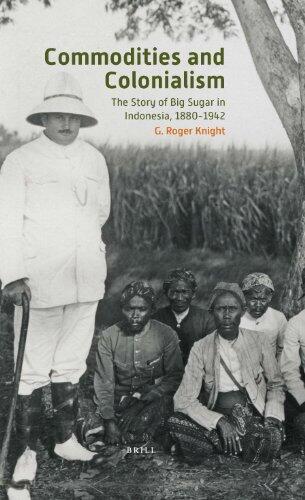
Commodities and Colonialism: The Story of Big Sugar in Indonesia, 1880-1942
によって
G. Roger Knight
まだ評価がありません
History
形式
ハードカバー
ページ数
304
言語
英語
公開されました
Mar 1, 2013
出版社
Brill
版
Illustrated
ISBN-10
9004250514
ISBN-13
9789004250512
説明
This compelling narrative delves into the pivotal role of sugar as a dominant commodity in Indonesia from 1880 to 1942, intertwining its history with the broader themes of colonialism and economic exploitation. The author, G. Roger Knight, carefully unpacks the profound impact sugar production had on both the local Indonesian populace and the global market, drawing parallels to the significance of oil in modern times.
Knight illuminates the complexities of colonial governance and how it shaped the agricultural landscape. He examines the exploitation of labor and resources, revealing the harsh realities faced by Indonesian workers under colonial rule. Through meticulous research, the author offers a detailed account of the socio-economic transformations induced by the sugar industry, illuminating the intersection of colonial power and capitalist demands.
With rich historical context and insightful analysis, this work presents a critical examination of how a single commodity can influence cultures, economies, and power dynamics, making it an essential read for those interested in colonial history and economic history alike.
Knight illuminates the complexities of colonial governance and how it shaped the agricultural landscape. He examines the exploitation of labor and resources, revealing the harsh realities faced by Indonesian workers under colonial rule. Through meticulous research, the author offers a detailed account of the socio-economic transformations induced by the sugar industry, illuminating the intersection of colonial power and capitalist demands.
With rich historical context and insightful analysis, this work presents a critical examination of how a single commodity can influence cultures, economies, and power dynamics, making it an essential read for those interested in colonial history and economic history alike.